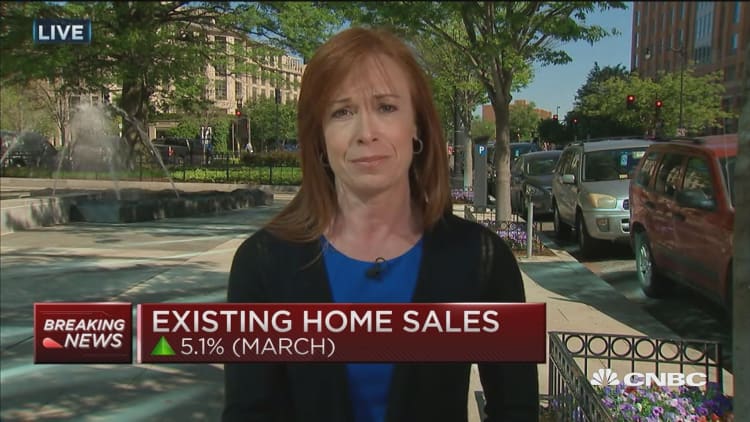Even though all real estate is local, most markets today are seller's markets.
The supply of homes is very low nationwide, and builders are not putting up nearly enough homes to meet demand. Sunday open houses this spring often look like the hottest new restaurants, with customers lined up outside.
It begs the question: Given all the competition among buyers, do sellers really need to have an open house at all?
Open houses are a good way to get attention. There are ads in the paper, signs on the corner and sometimes even a few colorful balloons. They rarely, however, lead to a higher price or a quicker sale, according to officials at real estate brokerage Redfin.
For example, in Austin, Texas — a particularly hot housing market — 26 percent of homes that did not hold an open house sold above list price, while just 17 percent of those with open houses did, according to a Redfin survey.
The vast majority of listings today go up on various websites before anyone opens a door. If a home is that great in Austin and it's priced right, it will sell within days. Only the less desirable ones are still around on the market a week later, when it's time for the open house.
There's one exception: If you list the home online and hold an open house almost immediately, the home can sell more quickly — and for a higher price. The higher the exposure, the greater the competition and therefore the price. If your market is a bit cooler than Austin's, you probably want to have at least one open showing.
"Every market has its own cadence to the marketing of a property," said Dana Rice, a real estate agent with Compass in the Washington, D.C., area. "Where we are, the open house is pretty standard.
"You want to cast the widest net possible, and however the buyers want to see the house, you want to meet them."
Rice says she'll have crowds at some opens, but if the home isn't priced right, people won't show up. As a seller, if you do decide to open your home, you want to be careful.
Open house preparation checklist
- Put all your valuables away.
- Have enough agents on site to keep an eye on all attendees.
- Bake cookies in advance to lend a great aroma to the home (seriously).
- Put away all personal items.
- Clean off your desk, removing all paperwork.
- Unplug all computers.
"It's a personal decision, but if you have an open house, you should put away your jewelry [and] put away pictures of your kids," said Glenn Kelman, CEO of Redfin. "You should treat it like a museum opening."
Additionally, Kelman said, you need to have people keep an eye on those prospective homebuyers. "If there is an upstairs and a downstairs, you have to have enough people there to help you," he advised.
Other good ideas include cleaning off your desk, removing all paperwork, unplugging computers and even baking a batch of cookies right before a showing so that your house smells inviting.

But what if a sale isn't the primary reason real estate agents push the open house? What if they have another agenda — and it doesn't include you or your home?
"The real reason agents line up to do open houses is to recruit clients," wrote commentator Chrystal Caruthers in a 2015 article for Realtor.com. She is a former Realtor, according to the website.
Caruthers said open houses are training and recruiting platforms for new agents, or agents who do not yet have listings of their own.
"Yes, they exist to sell homes, but they also exist to sell brokers," she claimed.
Brokers want unrepresented buyers to fall in love with their charm, their knowledge of the neighborhood and their marketing prowess, all so they can represent the buyer walking through the door, whatever home they wind up buying.
Thus, real estate agents could be using your home to market themselves. Or maybe they help everyone.
"I think the reason that open houses tend to get a bad reputation as only for the agents is because it doesn't necessarily sell the house, but they do help the buyers," said Rice at Compass. "Agents can't be everywhere with their buyers, and so this is a way for buyers to do the due diligence on their own."




